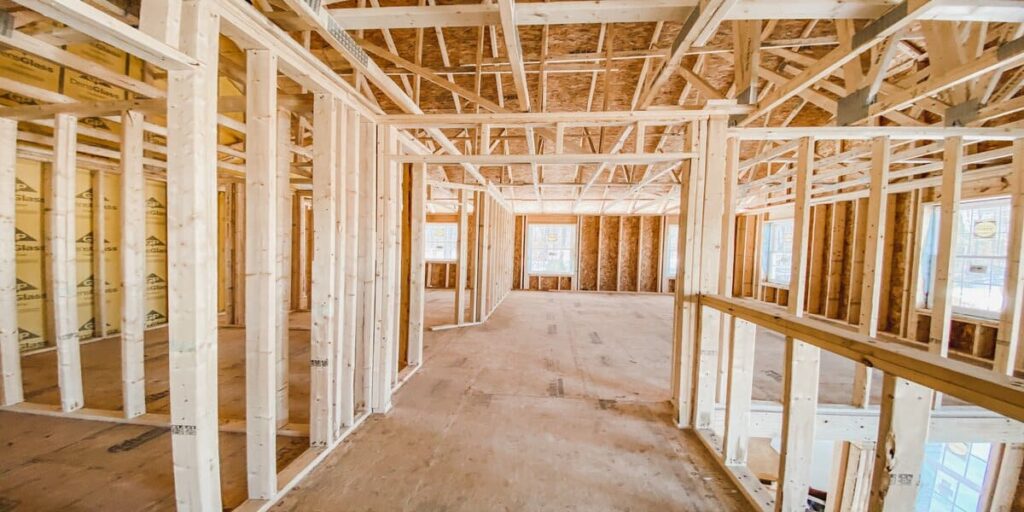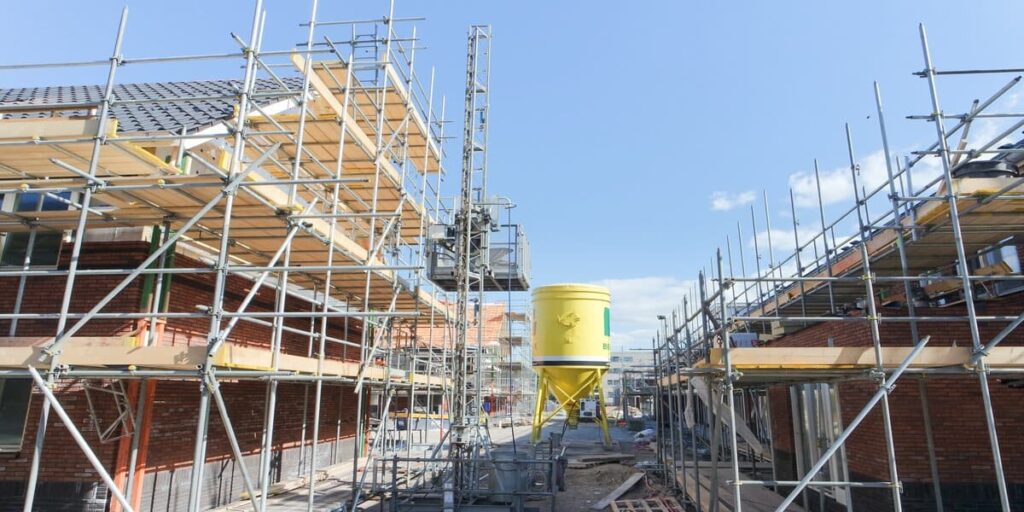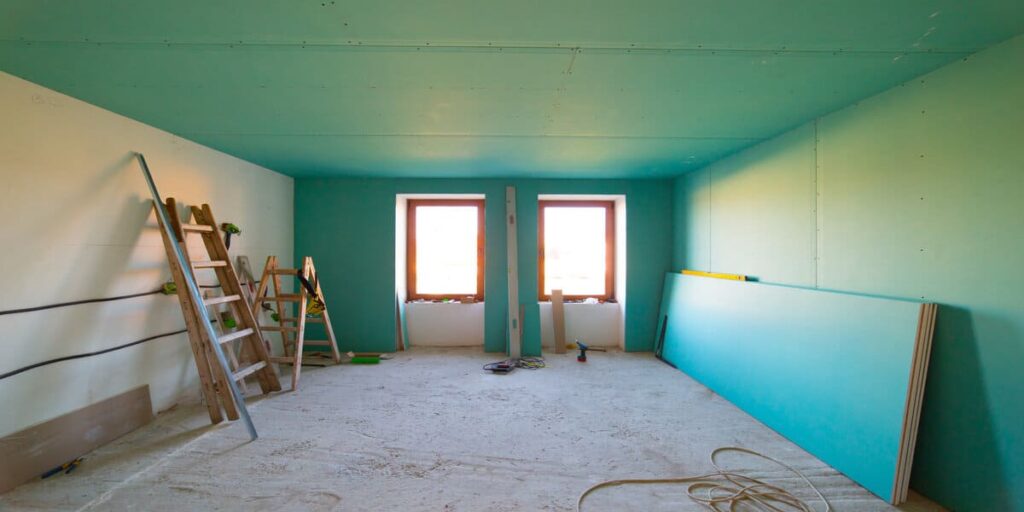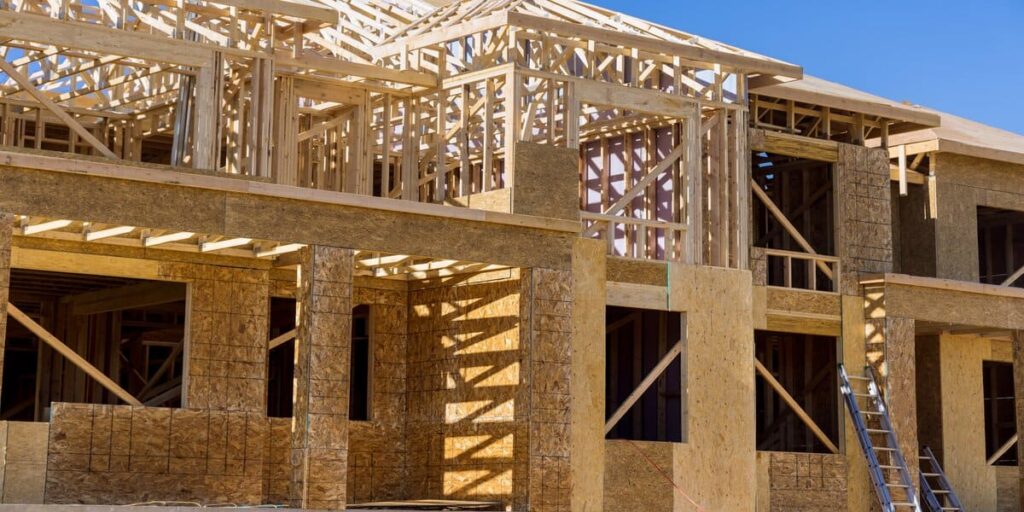If you’re looking for a financing option to fund your property renovation or construction, then you might want to consider getting a construction loan, a type of loan that is specifically designed for this purpose. Construction loans are short-term financing options that work far differently from the traditional mortgages. Instead of providing a lump sum for purchasing existing homes, they pay in stages as work progresses, according to the needs of the construction project. In terms of interest, construction loans typically have variable rates corresponding to a certain percentage over the prime rate and are converted into a permanent mortgage once the construction is complete. With this flexibility, construction loans provide great financial support to bring custom-built homes or major renovation projects from blueprints to reality.
Construction Loans vs. Traditional Home Loans
Construction loans differ significantly from traditional home loans in that they are designed to finance the construction of a new home, providing funds in staggered disbursements as building milestones are achieved. While traditional home loans are typically long-term financing with stable interest rates secured for existing properties, construction loans have variable rates and shorter terms and focus on covering the costs of home creation before converting into standard mortgages post-construction. These distinctions make construction loans more complex and specialized than traditional home loans’ more straightforward, long-term financing.
Types of Construction Loans
Construction-to-permanent loans: Perhaps the simplest type, construction-to-permanent loans combine the construction loan and mortgage into one agreement. Here’s how it works: initially, you pay interest only during the construction phase; and upon completion, the loan converts into a standard mortgage. By then, the interest rate is locked for the home’s financing.
Stand-alone construction loans: Unlike the first one, these construction loans offer more lender options and potentially better rates as they require a separate mortgage application after the home is built. With this, borrowers can shop around for the best terms and rates and have more control over their financing options. However, with stand-alone construction loans, two separate closings and approval processes are involved, which can be more complex and costly.
Renovation construction loans: If you’re a homeowner or buyer looking to remodel your property, the renovation construction loan, specifically designed for major home improvements, is for you! In this lending option, the loan amount is based on the home’s projected value after the improvements. It is also important to note that with this option, detailed project plans and a qualified contractor are required.
Owner-builder construction loans: Are you a professional builder or someone who plans to oversee the construction yourself? This financing option, offering the potential for cost savings, is perfect for you. However, remember that this type of loan is more risky and usually requires a higher down payment. Additionally, since the borrower is responsible for the project’s success, he is also required to provide proof of building expertise.

The Process from Application to Approval
To qualify for a construction loan, you will need to submit the required documents such as proof of income, credit history, a comprehensive project plan, and appraisal of the planned home’s value. These will be the lenders’ basis for evaluating your financial health and creditworthiness as well as the viability of the construction project itself. So, for smoother transactions and higher chances of getting approved, have the following documentations prepared before submitting your loan application.
Credit Score and History: Due to the increased risk involved, lenders require a higher credit score for construction loans compared to traditional home loans. So, if you have a strong credit score and a clean credit history, you have good chances of securing a construction loan as this reflects your reliability and financial stability.
Down Payment Amount: Construction loans generally require a larger down payment, ranging from 20% to 30% of the total project cost. This substantial upfront investment shows your commitment as a borrower and reduces the lender’s risk.
Builder Qualifications and Project Plan: A detailed project plan must also be submitted for loan approval. By evaluating the project plan, lenders examine the builder’s qualifications, including their reputation, financial stability, and track record in order to ensure that the construction is feasible and well-organized.
Appraisal and Future Value of the Home: The planned home is appraised to determine its potential value upon completion. Lenders require this to ensure that the loan amount is appropriate for the home’s future market value so as to safeguard the investment for both the lender and borrower.
Disbursement of Funds
Once your application is approved, funds from construction loans are disbursed in a series of draws, as there are also specific stages of the construction process. After each phase of work is completed, lenders typically send an inspector to verify progress before releasing the next draw. This disbursement system ensures funds are used appropriately and that the project stays on track, protecting both the lender’s and borrower’s interests.
Interest Rates and Payment Plans
This is perhaps one of the first things you want to know about construction loans. Construction projects are associated with greater risks, hence, it is not surprising that this financing option often features variable interest rates higher than traditional mortgages. During construction, borrowers usually pay interest only on the amount drawn. However, it transitions to standard principal and interest payments once the building is complete and the loan converts to a typical mortgage. This arrangement allows for manageable payments during construction, with full repayment terms established post-construction.

Advantages & Disadvantages of Construction Loans
Construction loans offer great financial aid to borrowers as they allow them to customize their homes from the ground up according to their personal tastes and needs. Moreover, they lead to a potential increase in property value as the finished home can often be worth more than the sum of the land value and construction costs if the construction goes as planned.
On the other hand, construction loans have greater risks and a temporary nature as they come with higher interest rates than traditional mortgages. The approval process is also more rigorous, requiring detailed documentation, project plans, and often a higher credit score and down payment. These factors make construction loans more challenging and costly than standard home loans.
Using Personal Loans or Home Equity for Construction
For smaller construction or renovation projects, personal loans or home equity lines of credit can be alternative funding sources to construction loans. Personal loans are convenient as they also offer flexibility and quick access to funds. While these options generally come with higher interest rates than construction loans, they are less restrictive and simpler to obtain. With that, they can be a viable option for borrowers with substantial equity in their property or those needing smaller amounts for short-term construction needs.

Preparing to Apply for a Construction Loan
Now that you’re ready to apply for a construction loan, here are a few steps you must follow:
Gathering Necessary Documents: As mentioned earlier, assemble a comprehensive package of documents, including proof of income, credit history, detailed project plans, and a contract with a licensed builder. This documentation is required for lenders to assess the feasibility of the project and your financial stability as a borrower.
Choosing the Right Builder: Select a reputable, licensed builder with successful projects. Lenders will closely examine the builder’s qualifications and reliability, and their involvement is a contributing factor to the project’s success and loan approval.
Budgeting and Timeline Planning: Make an effective budget and timeline plan to demonstrate to lenders that your project is well thought out and feasible. It will show the lenders that you considered the costs and schedule of the project, thus reducing the perceived risk for them.
Building Futures: The Construction Loan Wrap-Up
Construction loans are specialized financial tools designed for the unique demands of building or renovating a home. These loans are best suited for individuals looking to construct a custom home or undertake a major renovation, willing to navigate the intricate process for the reward of a tailored, potentially value-increasing property. They offer the flexibility of stage-based funding and the potential for creating a custom property. However, they come with higher interest rates, stringent approval criteria, and a significant amount of down payment. When considering a construction loan, homeowners need to have a solid financial standing, a well-planned project, and a reliable builder. Taken together, construction loans are a viable, albeit complex, pathway to making your dream home a reality.

Frequently Asked Questions
Can I Use the Loan to Renovate my Existing Home?
There are specific renovation construction loans designed for significant home improvements and upgrades.
Do I Need to Own the Land Before Applying for a Construction Loan?
Owning the land can be beneficial and is often required; however, some construction loans can include land purchase as part of the loan amount.
What Happens If the Project is Over Budget?
Going over budget can be risky. Borrowers might need additional approval for more funds or cover the extra costs themselves. It’s crucial to have a contingency plan and detailed budget.
Are There Inspections During the Construction Process?
Yes, lenders will conduct periodic inspections at various construction stages before releasing additional funds to ensure the project progresses as planned.
Can a Construction Loan be Converted into a Mortgage?
Many construction-to-permanent loans allow for a seamless transition from the construction loan phase into a standard mortgage once construction is complete.
References
What you need to know about Construction Loans?



























